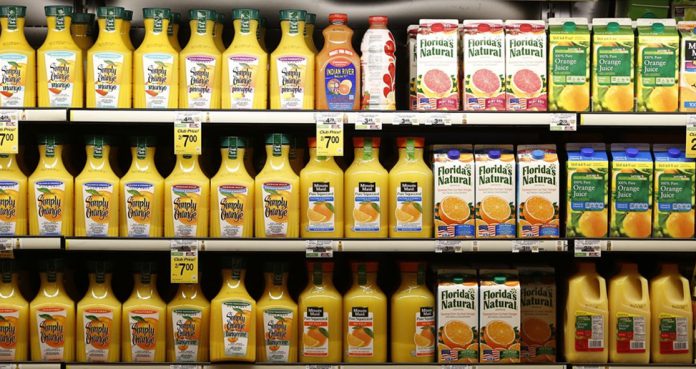There is strong evidence that many sugar-sweetened beverages have little or no nutritional benefits and contain loads of calories. In addition, their harmful health effects are very well documented.
According to a new study, there is an increased risk of premature death with not only sodas but also natural fruits juices.
The study published Friday in the journal called JAMA Network Open has found that drinking too much fruit juices could increase the risk of premature death by nine to 42 percent. The sugars found in orange juice are quite similar to the sugars added to sodas and other sweetened beverages, according to the study.
The study co-author Jean Welsh said, “Sugary beverages, whether soft drinks or fruit juices, should be limited.”
Seven cities in the United States have imposed taxes on sweetened drinks added with sugar in an effort to reduce overall intake. These federal laws highlight how sugary beverages have contributed to the growing number of childhood obesity and diabetes among adults.
Welsh explained, “Previous research has shown that high consumption of sugars like those in soft drink and fruit juices is linked to several cardiovascular disease risk factors.” Obesity, diabetes, and high triglycerides are among the potential risk factors associated with too much sugar intake. She added, “Few studies have been able to look at how this consumption might impact mortality risk.”
Welsh and her team of researchers looked at data of more than 13,400 adults who were 45 and above, which included 60 percent men and over 70 percent of them with obesity. They found that approximately 10 percent of their daily calories from sugary beverages had a 44 percent risk of dying from coronary heart disease and a 14 percent risk of premature death.
The researchers explained that there could be a number of possible physiological mechanisms behind the elevated risk of death. For instance, one of the possibilities is insulin resistance, which is known to increase the risk of cardiovascular disease. Another possibility included that fructose consumption stimulates certain hormones that promote weight gain, a risk factor of cardiovascular disease.
Dr. Marta Guasch-Ferré, a research scientist and Dr. Frank Hu, a professor of medicine at Harvard Medical School wrote, “This is one of the first studies to examine the relationship between sugary drinks, including 100 percent fruit juices, and early death.” They were not part of the study. They explained that the study is limited and considered that the analysis was weak. The experts opine that the study would have given a clear picture if it included more participants.
Dr. Guasch-Ferré and Dr. Hu wrote, “Although fruit juices may not be as deleterious as sugar-sweetened beverages, their consumption should be moderated in children and adults, especially for individuals who wish to control their body weight.”
The American Academy of Pediatrics and the Dietary Guidelines for Americans recommend children (one to six years) to limit fruit juice intake to six ounces per day and children (above seven years), teenagers and adults to limit fruit juice to eight ounces per day.
Dr. Guasch-Ferré and Dr. Hu said, “Further research is needed to examine the health risks and potential benefits of specific fruit juices.”























